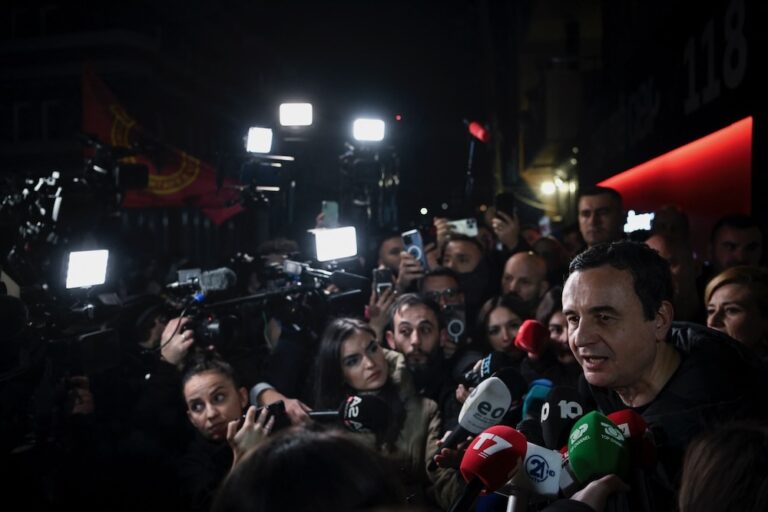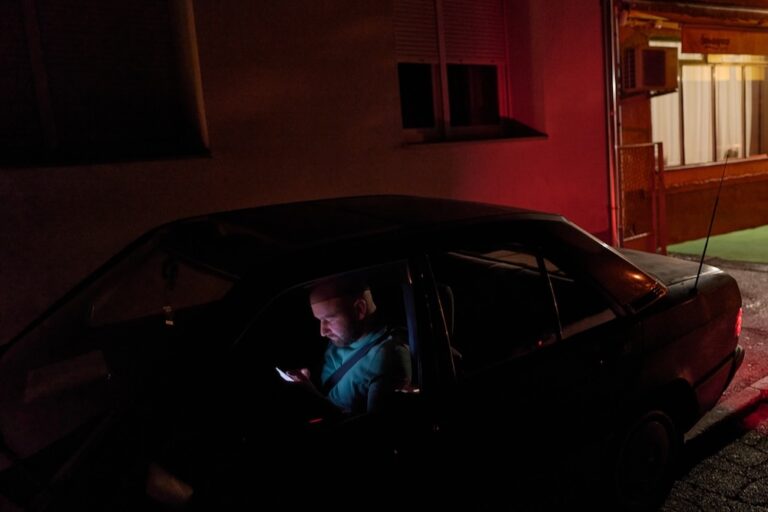(IFJ/IFEX) – The following is a 23 May 2002 IFJ media release: IFJ Warns Against “Unfair Treatment” Over Bid to Limit Advertising Rights in Bosnia Broadcast Law The International Federation of Journalists today warned against attempts to undermine the right to broadcast advertising by the reformed public broadcasting network in Bosnia-Herzegovina. “Bosnia’s public broadcaster must […]
(IFJ/IFEX) – The following is a 23 May 2002 IFJ media release:
IFJ Warns Against “Unfair Treatment” Over Bid to Limit Advertising Rights in Bosnia Broadcast Law
The International Federation of Journalists today warned against attempts to undermine the right to broadcast advertising by the reformed public broadcasting network in Bosnia-Herzegovina.
“Bosnia’s public broadcaster must have the right to broadcast a limited amount of advertising, in line with European standards,” said Aidan White, General Secretary of the IFJ, following suggestions that some international community observers want this right removed or heavily curtailed in the draft law currently before the Office of the High Representative in Sarajevo.
“If this right is restricted Bosnia will suffer unacceptable discrimination and unfair treatment in a region where other public broadcasters – including those in Serbia and Croatia – carry advertising in line with European standards.” Without some advertising the public broadcaster will struggle to become sustainable, warns the IFJ.
The law foresees the establishment of an independent public service broadcaster covering the two entities of Bosnia and Herzegovina, but it may have to be imposed by the international community because of opposition from the government of Republika Srpska.
The law, which the IFJ broadly welcomes, represents a fundamental step towards a pluralist and independent broadcasting environment in Bosnia-Herzegovina. “It is an essential part of the Dayton strategy to create a democratic framework for the future of Bosnia,” says the IFJ.
The IFJ has also taken note of comments made by legal experts at ARTICLE 19, the centre against censorship, who seek a number of clarifications and amendments to further strengthen the law. Even so, the IFJ says that the law in its current form, like that currently before the parliament in Serbia, appears to create a satisfactory framework for public service broadcasting.
“But the IFJ is concerned that the law is not held up by disputes concerning funding through advertising,” said Aidan White. “The current draft sets advertising limits at 10 % of broadcasting time, which is comfortably in line with European norms and similar regulations within the region.
“Experience in other countries proves that while a legal framework is essential for pluralistic and independent broadcasting, the success or failure of a public broadcaster largely rests with the application by management, journalists and media workers.”
In particular, journalists, editors and programme makers should be engaged in drafting editorial statutes and ethical guidelines that ensure editorial independence and professionalism. The Zagreb Declaration, adopted in 1999 by journalists from South-Eastern Europe, is a sound basis for new rules, says the IFJ, which has launched a public service broadcasting campaign to raise standards throughout the region.
The IFJ represents more than 500,000 journalists in more than 100 countries.


